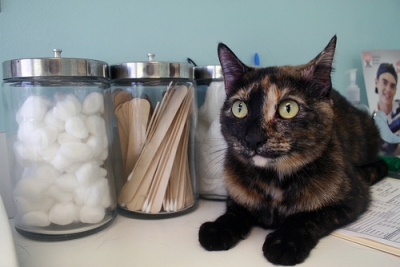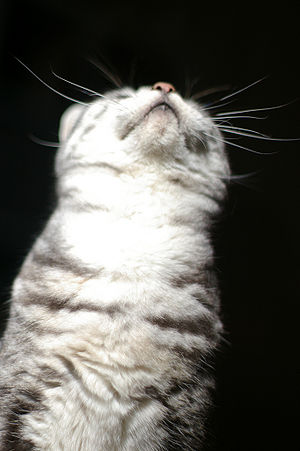Hypertrophic Cardiomyopathy is a more common heart disease in cats, rare in dogs. It is frequently the cause of spontaneous death in cats. Some cats with hyperthyroidism may develop it, but when the thyroid problem is treated, HC may resolve itself.
HC usually affects cats 1-5 years old, but can be present in younger or older felines. Breeds that especially need to be watched are Maine Coons, Ragdolls, British Shorthairs, American Shorthairs and Devon Rexes.
HC causes the walls of the heart to thicken. Scar tissue replaces the muscle fiber of the heart walls making them thicker. The heart becomes less elastic and weakened and the chambers become smaller.
Early symptoms of HC can be difficult to diagnose. A blood clot in an artery may be the first indication and may form leading to suddden paralysis. Other signs include increased heart rate, heart murmur, reduced appetite, weight loss. If pulmonary edema is present, the cat may cough.
Cats will often limit their own activity recognizing their loss of energy. Sadly, sometimes the only sign of the disease is sudden death.
Diagnosis is made through a general examination and a combination of tests – chest x-rays, electrocardiogram (EKG), ultrasound, Echocardiogram, thyroid function tests.
Treatment involves prescribing medications to reduce fluid buildup and dilate blood vessels, relaxing the heart and increasing function. Recommended drugs may be diruetics, beta blockers, ACE inhibitors, calcium channels blockers. Use these drugs only as prescribed by your vet. Aspirin is sometimes added to reduce the possibility of blood clots forming, but only upon the recommendation of your veterinarian.
Periodic checkups are necessary. Prognosis is better with early detection. Your vet may recommend periods of cage rest to reduce the cat’s activity and lessen strain on the heart.


